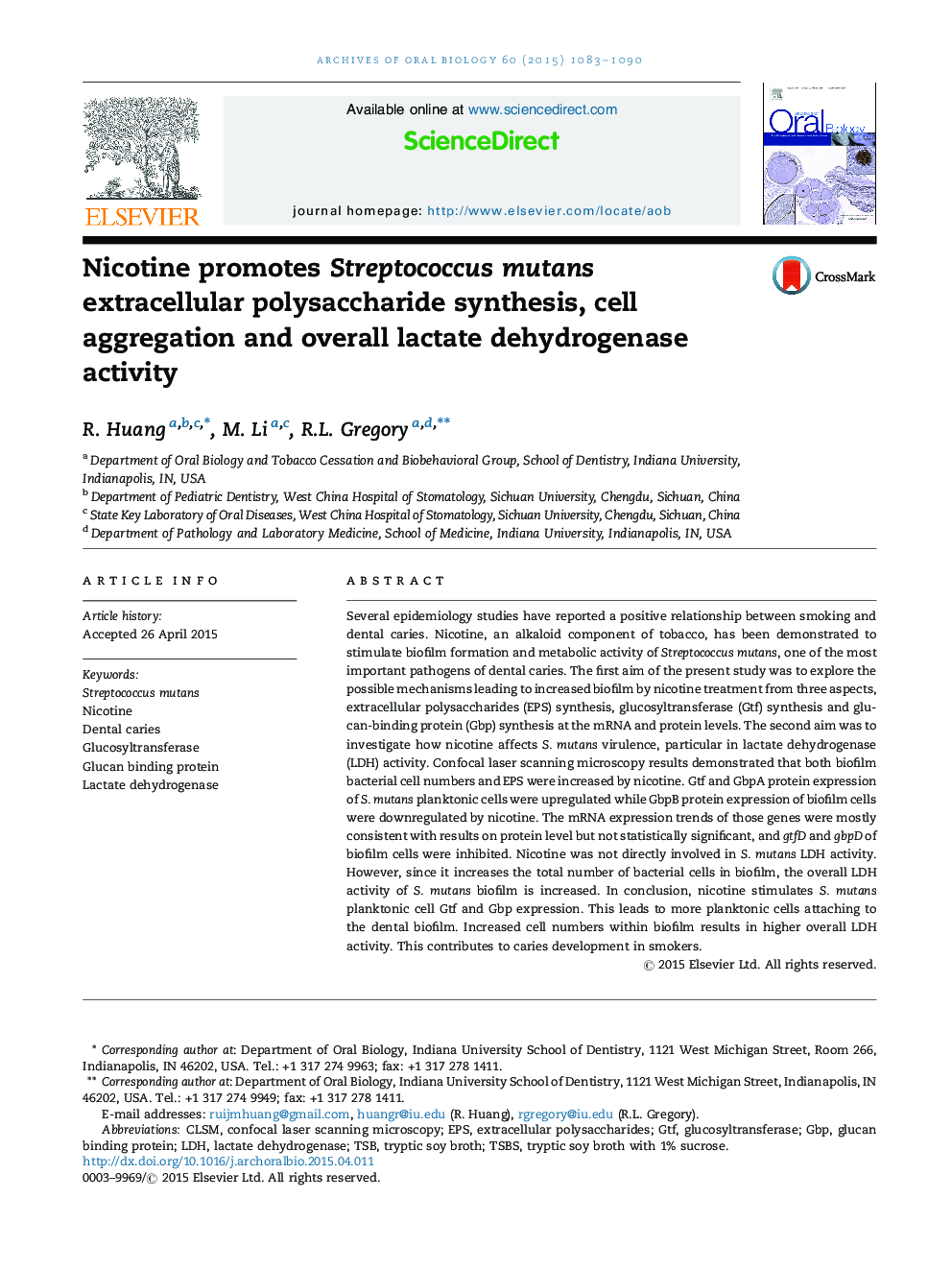| Article ID | Journal | Published Year | Pages | File Type |
|---|---|---|---|---|
| 3120761 | Archives of Oral Biology | 2015 | 8 Pages |
•First report for the mechanisms of nicotine's effect on S. mutans cell binding.•Nicotine promotes S. mutans cell multiplication and EPS synthesis in biofilm.•S. mutans overall lactate dehydrogenase activity is increased by nicotine.•S. mutans planktonic cell Gtfs and GbpA are upregulated by nicotine.
Several epidemiology studies have reported a positive relationship between smoking and dental caries. Nicotine, an alkaloid component of tobacco, has been demonstrated to stimulate biofilm formation and metabolic activity of Streptococcus mutans, one of the most important pathogens of dental caries. The first aim of the present study was to explore the possible mechanisms leading to increased biofilm by nicotine treatment from three aspects, extracellular polysaccharides (EPS) synthesis, glucosyltransferase (Gtf) synthesis and glucan-binding protein (Gbp) synthesis at the mRNA and protein levels. The second aim was to investigate how nicotine affects S. mutans virulence, particular in lactate dehydrogenase (LDH) activity. Confocal laser scanning microscopy results demonstrated that both biofilm bacterial cell numbers and EPS were increased by nicotine. Gtf and GbpA protein expression of S. mutans planktonic cells were upregulated while GbpB protein expression of biofilm cells were downregulated by nicotine. The mRNA expression trends of those genes were mostly consistent with results on protein level but not statistically significant, and gtfD and gbpD of biofilm cells were inhibited. Nicotine was not directly involved in S. mutans LDH activity. However, since it increases the total number of bacterial cells in biofilm, the overall LDH activity of S. mutans biofilm is increased. In conclusion, nicotine stimulates S. mutans planktonic cell Gtf and Gbp expression. This leads to more planktonic cells attaching to the dental biofilm. Increased cell numbers within biofilm results in higher overall LDH activity. This contributes to caries development in smokers.
